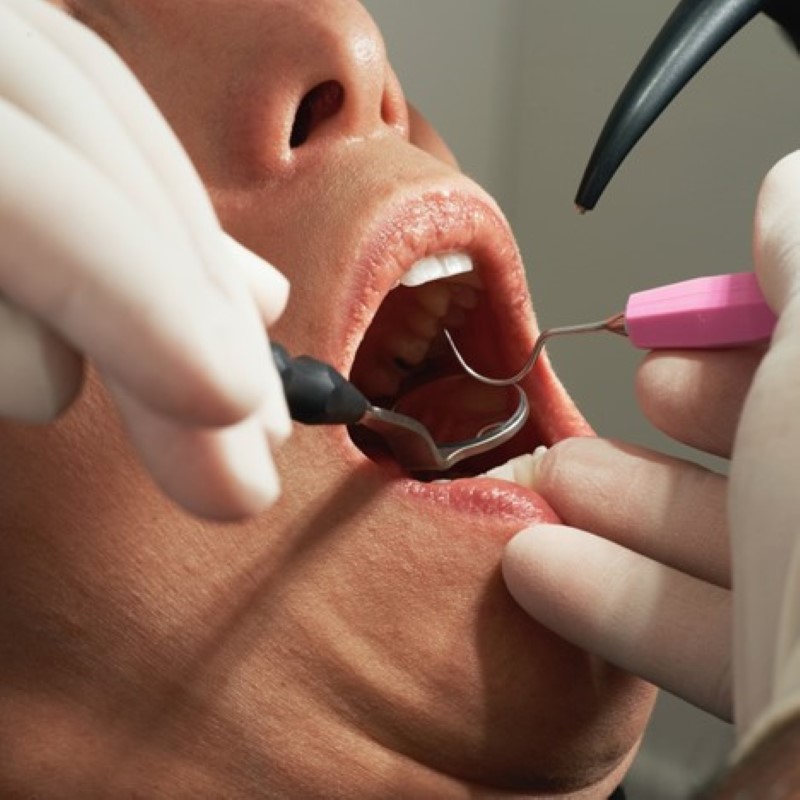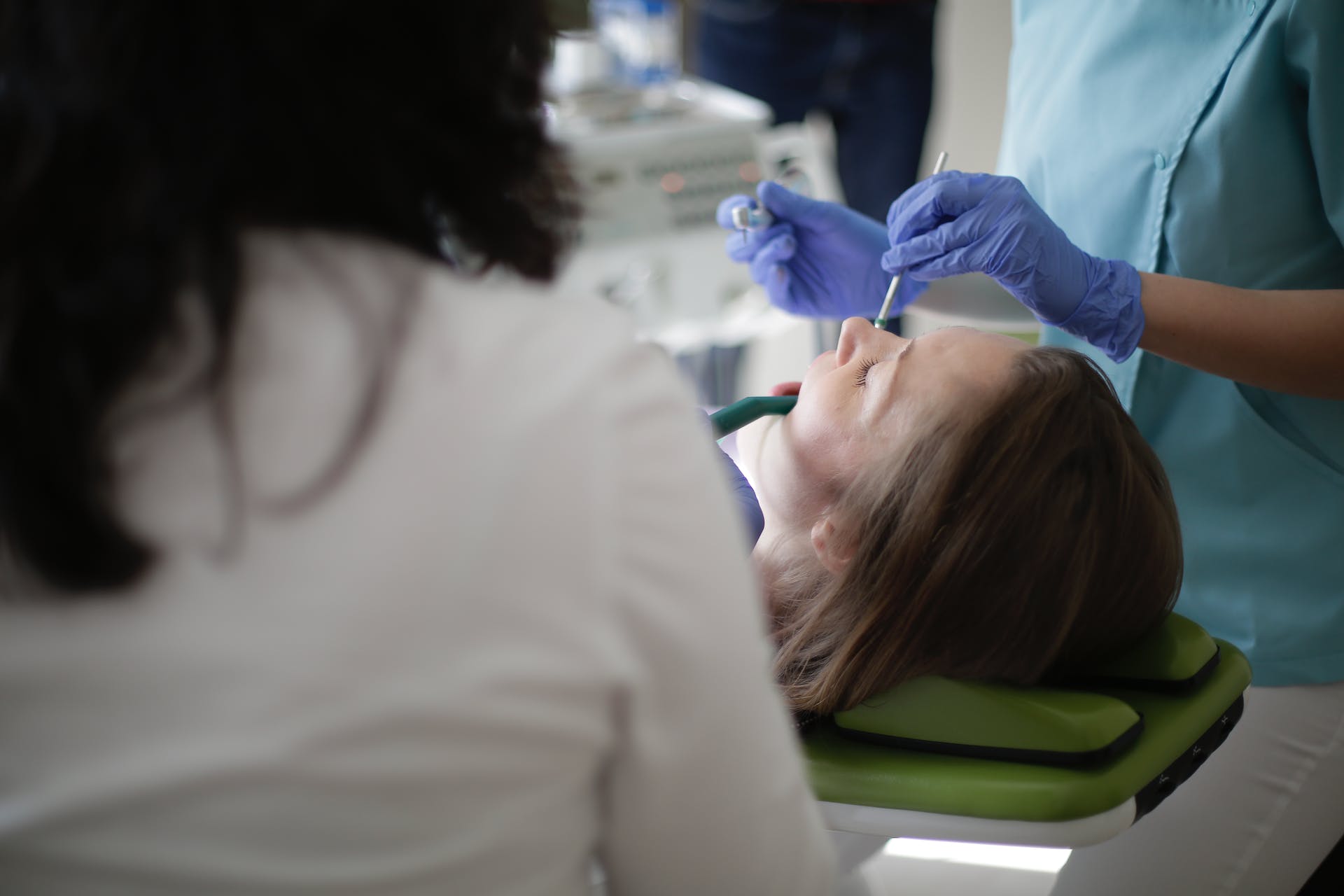Nov
16

Experiencing sudden pain in all your teeth can be alarming and uncomfortable, and most likely warrants a visit to the dentist. While you might be reluctant to head to your local dental surgery, sudden tooth pain usually indicates some form of underlying issue, whether it be tooth decay, a loosened tooth, or an abscess. In this article, we’re going to explore some common reasons why all your teeth might hurt suddenly and when it might be necessary to book an emergency dentist appointment.
Understanding the Sudden Onset of Tooth Pain
Tooth pain, especially when it affects all your teeth at once, can range from mild discomfort to severe aches, and this widespread pain can be triggered by several factors, ranging from dental to non-dental causes. Understanding the root cause is crucial in addressing the pain effectively and preventing further complications – so here are some common reasons for sudden onset tooth pain:
Gum Disease
Gum disease, or periodontitis, is a common cause of pain in all your teeth, and it occurs when the gums become inflamed and infected, often due to plaque buildup. The inflammation can lead to gum recession, exposing more of your teeth and their roots, making them more sensitive and painful. If you notice bleeding gums, bad breath, or receding gums along with tooth pain, it’s time to consult your dentist.
Sinus Infection
Surprisingly, a sinus infection can also cause your teeth to hurt; the maxillary sinuses are located just above your upper teeth, and when these sinuses get infected and swell, they can exert pressure on the roots of your upper teeth, leading to widespread pain. If your toothache is accompanied by sinus pressure, headaches, or nasal congestion, a sinus infection could be the culprit.
Bruxism (Teeth Grinding)
Bruxism, or teeth grinding, is a habit that many people may not even realize they have, especially if it occurs during sleep. Constant grinding puts excessive pressure on the teeth and jaw, leading to pain throughout your mouth, and over time, this can also lead to enamel erosion and increased tooth sensitivity. If you wake up with sore teeth or a headache, or if your partner notices grinding sounds at night, bruxism might be the reason for your tooth pain.
Temperature Sensitivity
If your teeth suddenly hurt after consuming hot or cold foods and beverages, you may be experiencing temperature sensitivity. This can occur due to enamel erosion, exposed tooth roots, or recent dental work. Sensitivity to temperature changes can cause discomfort in multiple teeth simultaneously, while tooth decay tends to occur around just one tooth.

Dental Abscesses
A dental abscess is a severe and potentially dangerous condition where a pocket of pus forms in the teeth or gums due to a bacterial infection, and requires an emergency dentist appointment in London. An abscess can cause pain in not just one tooth, but potentially in all the teeth if the infection spreads. Symptoms include severe, persistent toothache, sensitivity to hot and cold, fever, and swelling in the face or cheek. If you suspect a dental abscess, it’s crucial to seek immediate dental care to prevent the spread of infection.
Nutritional Deficiencies
Certain nutritional deficiencies, especially those involving vitamins and minerals essential for oral health, can also lead to generalized tooth pain. For example, a deficiency in Vitamin D, calcium, or B vitamins can affect the health of your teeth and gums, leading to discomfort and pain. Ensure a balanced diet and consider consulting your doctor for a nutritional assessment if you suspect this might be the cause, after ruling out potential dental problems.
Other Health Conditions
Sometimes, tooth pain might be a symptom of underlying health conditions, such as heart disease, diabetes, or autoimmune disorders: these conditions can affect the blood flow to the gums and teeth or cause inflammation, leading to pain. It’s important to consider your overall health and consult with healthcare professionals if you have chronic health conditions, but always rule out dental problems first.
Also Read: Why Do My Teeth Hurt When I Bite Down?
When to See a Dentist
If you’re experiencing sudden pain in all your teeth, it’s important to schedule an appointment with your dentist. They can help identify the cause of the pain and recommend the appropriate treatment. If the pain is severe, accompanied by swelling, fever, or signs of infection, seek an emergency dentist appointment as soon as possible.
The Bottom Line
Sudden pain in all your teeth can be distressing, but understanding the potential causes is the first step towards relief. From gum disease and sinus infections to nutritional deficiencies and underlying health conditions, there are several reasons why you might be experiencing this discomfort, so don’t panic. Remember, timely consultation with your dentist is key to addressing the pain effectively and maintaining good oral health, so if you’re in pain and it won’t go away, always seek professional advice and get the treatment you need.
Read Next: Why Are My Teeth See-Through?










